Mercedes Vito Bus vs VW ID. Buzz Bus - Differences and prices compared
Compare performance (237 HP vs 340 HP), boot space and price (36300 £ vs 42900 £ ) at a glance. Find out which car is the better choice for you – Mercedes Vito Bus or VW ID. Buzz Bus?
Costs and Efficiency:
Price and efficiency are often the first things buyers look at. Here it becomes clear which model has the long-term edge – whether at the pump, the plug, or in purchase price.
Mercedes Vito Bus has a slightly advantage in terms of price – it starts at 36300 £ , while the VW ID. Buzz Bus costs 42900 £ . That’s a price difference of around 6525 £.
In terms of energy consumption, the advantage goes to the VW ID. Buzz Bus: with 19 kWh per 100 km, it’s significantly more efficient than the Mercedes Vito Bus with 26.70 kWh. That’s a difference of about 7.70 kWh.
As for electric range, the VW ID. Buzz Bus performs noticeable better – achieving up to 485 km, about 115 km more than the Mercedes Vito Bus.
Engine and Performance:
Power, torque and acceleration are the classic benchmarks for car enthusiasts – and here, some clear differences start to show.
When it comes to engine power, the VW ID. Buzz Bus has a evident edge – offering 340 HP compared to 237 HP. That’s roughly 103 HP more horsepower.
In terms of top speed, the VW ID. Buzz Bus performs a bit better – reaching 160 km/h, while the Mercedes Vito Bus tops out at 140 km/h. The difference is around 20 km/h.
There’s also a difference in torque: VW ID. Buzz Bus pulls clearly perceptible stronger with 679 Nm compared to 500 Nm. That’s about 179 Nm difference.
Space and Everyday Use:
Cabin size, boot volume and payload all play a role in everyday practicality. Here, comfort and flexibility make the difference.
Seats: Mercedes Vito Bus offers evident more seating capacity – 8 vs 5.
In curb weight, Mercedes Vito Bus is to a small extent lighter – 2023 kg compared to 2400 kg. The difference is around 377 kg.
In terms of boot space, the Mercedes Vito Bus offers minimal more room – 1390 L compared to 1340 L. That’s a difference of about 50 L.
In maximum load capacity, the Mercedes Vito Bus performs significantly better – up to 4990 L, which is about 2785 L more than the VW ID. Buzz Bus.
When it comes to payload, Mercedes Vito Bus convincingly takes the win – 1077 kg compared to 600 kg. That’s a difference of about 477 kg.
Who wins the race in the data check?
The Mercedes Vito Bus holds a very small edge in the objective data comparison.
This result only shows which model scores more points on paper – not which of the two cars feels right for you.
Costs and Consumption
View detailed analysis
Engine and Performance
View detailed analysis
Dimensions and Body
View detailed analysis
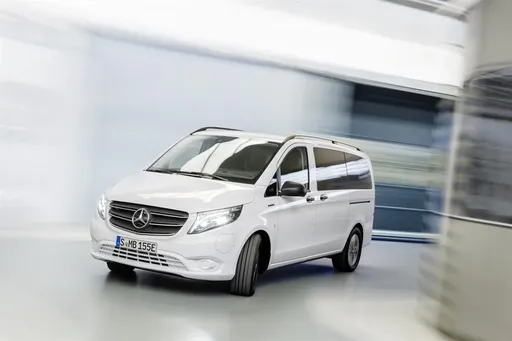
Mercedes Vito Bus
Mercedes Vito Bus
The Mercedes Vito is a sturdy, no-nonsense people carrier that blends commercial practicality with a surprisingly civilised cabin, making long shuttles feel less like a chore. If you need a dependable transporter that swallows luggage, forgives hard use and still looks a touch more premium than a plain van, the Vito is an easy, sensible pick.
details
VW ID. Buzz Bus
The VW ID. Buzz revives the classic camper van vibe with a modern electric twist, offering plush space and a friendly, futuristic face that stops traffic. It’s clearly built for weekend escapes and city runs alike, with clever interior details that make it as practical as it is charming.
details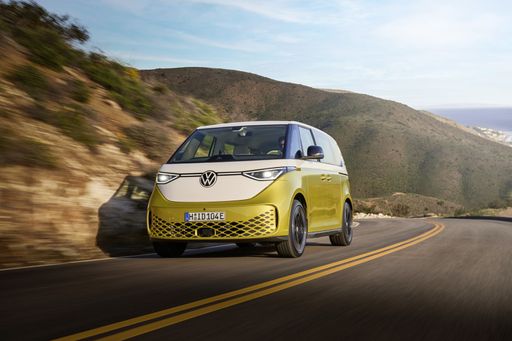
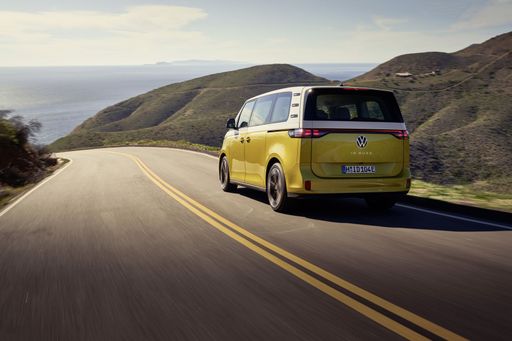
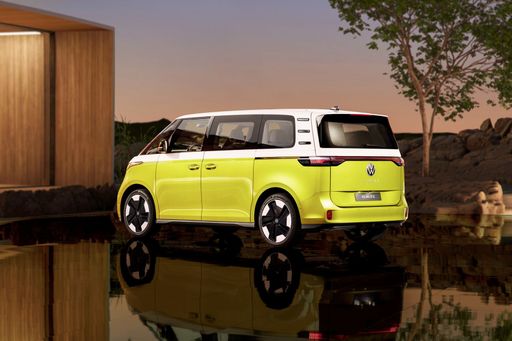
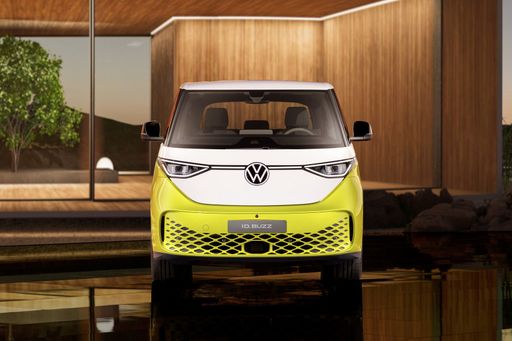
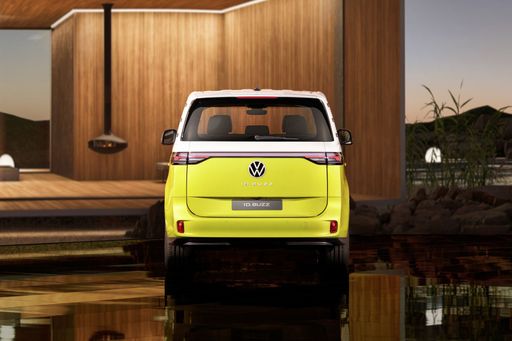
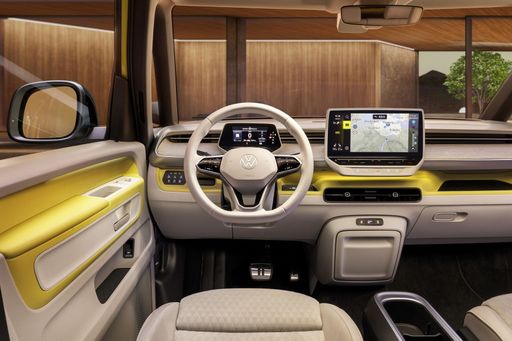
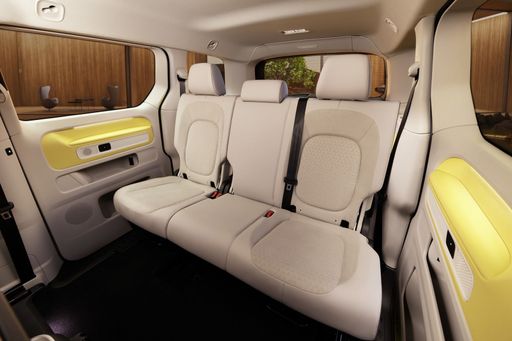
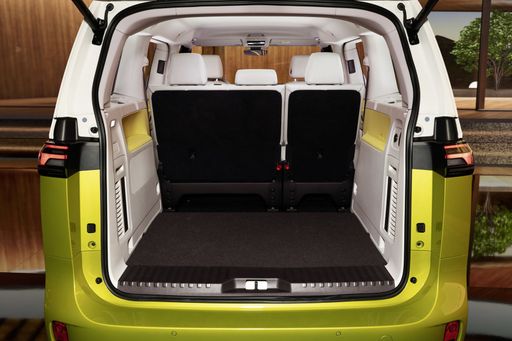
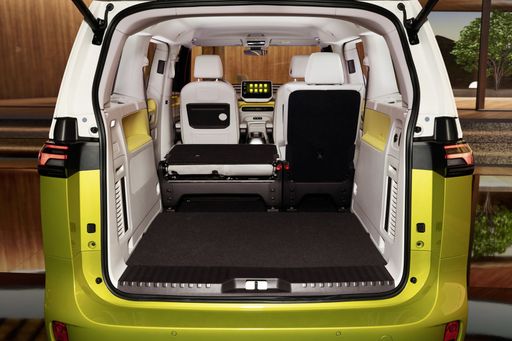
Costs and Consumption |
|
|---|---|
|
Price
36300 - 55900 £
|
Price
42900 - 64200 £
|
|
Consumption L/100km
6.7 - 10 L
|
Consumption L/100km
-
|
|
Consumption kWh/100km
26.7 - 26.9 kWh
|
Consumption kWh/100km
19 - 20.6 kWh
|
|
Electric Range
248 - 370 km
|
Electric Range
329 - 485 km
|
|
Battery Capacity
60 - 90 kWh
|
Battery Capacity
59 - 86 kWh
|
|
co2
0 - 228 g/km
|
co2
0 g/km
|
|
Fuel tank capacity
57 - 70 L
|
Fuel tank capacity
-
|
Dimensions and Body |
|
|---|---|
|
Body Type
Bus
|
Body Type
Bus
|
|
Seats
8
|
Seats
5
|
|
Doors
4
|
Doors
5
|
|
Curb weight
2023 - 2739 kg
|
Curb weight
2400 - 2780 kg
|
|
Trunk capacity
580 - 1390 L
|
Trunk capacity
1121 - 1340 L
|
|
Length
4895 - 5370 mm
|
Length
4712 - 4962 mm
|
|
Width
1928 mm
|
Width
1985 mm
|
|
Height
1890 mm
|
Height
1924 - 1927 mm
|
|
Max trunk capacity
4190 - 4990 L
|
Max trunk capacity
2205 L
|
|
Payload
726 - 1077 kg
|
Payload
462 - 600 kg
|
Engine and Performance |
|
|---|---|
|
Engine Type
Diesel, Electric, Petrol
|
Engine Type
Electric
|
|
Transmission
Automatic
|
Transmission
Automatic
|
|
Transmission Detail
Automatic Gearbox, Reduction Gearbox
|
Transmission Detail
-
|
|
Drive Type
Rear-Wheel Drive, All-Wheel Drive, Front-Wheel Drive
|
Drive Type
Rear-Wheel Drive, All-Wheel Drive
|
|
Power HP
136 - 237 HP
|
Power HP
170 - 340 HP
|
|
Acceleration 0-100km/h
-
|
Acceleration 0-100km/h
6.1 - 10.7 s
|
|
Max Speed
140 km/h
|
Max Speed
145 - 160 km/h
|
|
Torque
330 - 500 Nm
|
Torque
310 - 679 Nm
|
|
Number of Cylinders
4
|
Number of Cylinders
-
|
|
Power kW
100 - 174 kW
|
Power kW
125 - 250 kW
|
|
Engine capacity
1950 - 1999 cm3
|
Engine capacity
-
|
General |
|
|---|---|
|
Model Year
2024
|
Model Year
2024
|
|
CO2 Efficiency Class
G, A
|
CO2 Efficiency Class
A
|
|
Brand
Mercedes-Benz
|
Brand
VW
|
What drive types are available for the Mercedes Vito Bus?
The Mercedes Vito Bus is offered with Rear-Wheel Drive, All-Wheel Drive or Front-Wheel Drive.
